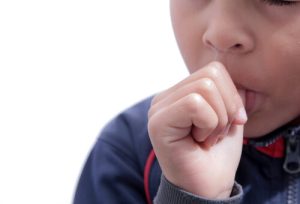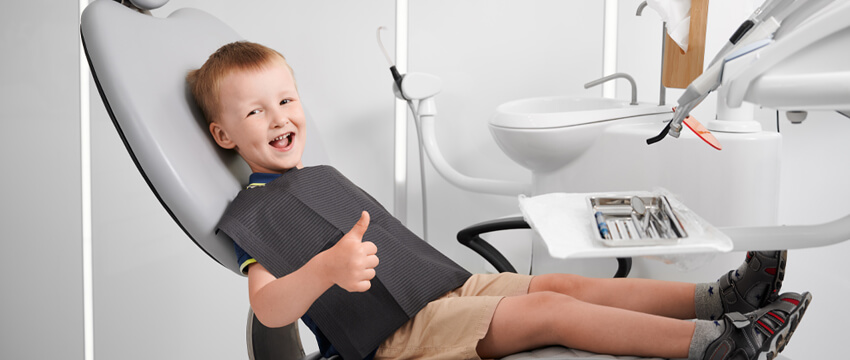Introduction
Thumb sucking is a natural reflex for most children and a common habit seen in newborns, infants, and toddlers. Parents may find it cute and endearing initially, but prolonged thumb-sucking behaviour can lead to dental problems and other complications. Hence, whether thumb sucking is bad for your child’s health? In this blog post, we will discuss the pros and cons of thumb-sucking and ways to help your child stop thumb-sucking.
Children suck their fingers or thumbs as a natural reflex, which can help them to feel soothed, secure, and relaxed. However, children who continue this habit can cause dental problems in the future, particularly if they develop permanent teeth. Sucking their thumb can affect the alignment of a child’s upper front teeth, moving them forward or backward or causing them to protrude. This can create problems with the teeth line and may require orthodontic treatment later.
Most children will stop their thumb-sucking behaviour before they start school. However, for children who don’t stop, parents may find it challenging to address the issue without causing distress. Some parents may be pressured to discourage thumb-sucking because of social norms or fear of their child’s oral health. However, it’s important to understand that thumb-sucking is a natural and common behaviour that doesn’t always pose a significant threat to a child’s health.
Why Children Opt for Thumb Sucking

Lastly, it helps your child fall asleep quicker and sleep for more extended periods. As we mentioned before, sucking their thumb or fingers is a calming mechanism that brings a lot of comfort to children. Helping to relax your child will give them a sense of security and comfort, making them feel more secure and settled before falling asleep, leading to better sleep.
Although, many dentists say that thumb sucking can cause problems later when adult teeth grow because it can cause the teeth to misalign. However, as long as the habit is broken before the adult teeth grow, the benefits far outweigh any potential problems with adult teeth.
Cons of Thumb Sucking
One of the main concerns with thumb sucking is its potential to cause dental problems. Prolonged thumb sucking can interfere with the proper alignment of the child’s teeth, leading to an overbite or an open bite. It can also cause the child’s upper front teeth to become pushed forward, creating a gap in the teeth line. These dental issues can be corrected with orthodontic treatment but can be costly and time-consuming. Therefore, it’s in the child’s best interest to stop thumb-sucking before these problems occur.
Another issue with thumb-sucking is the social stigma and embarrassment it can cause. Once a child reaches a certain age, thumb-sucking can become a source of teasing and ridicule by peers, which can harm the child’s self-esteem and confidence. Furthermore, if the child continues to suck their thumb in public, it may cause a negative impression on others, affecting their social development. To avoid this, it’s important to help the child break their thumb-sucking habit before it becomes observable.
Tips for Breaking the Thumb-Sucking Habit
Positive Reinforcement
The most effective way to end thumb-sucking is to provide positive reinforcement for not doing it. You could praise your child whenever they avoid sucking their thumb or fingers. You could also create a reward chart where your child earns a star every day they don’t suck their thumb. This gives them a good incentive to break the habit and makes them feel good about their progress.
Gentle Reminders
A gentle reminder can go a long way in helping children stop sucking their thumbs. Sometimes children suck their thumbs out of boredom or stress, so it can be helpful to hug them or play a game with them instead of letting them revert to their habit. If you notice your child sucking their thumb, you could gently remind them to stop and distract them with another activity. Over time, these gentle reminders will help your child break the habit.
Alternative Coping Mechanisms
Sucking on a thumb or finger is a way for children to relieve stress or anxiety, so it’s important to provide other coping mechanisms to replace this habit. These could include a favourite toy or stuffed animal, a stress ball, or a fidget toy. Offering comfort can provide the same sense of security and self-soothing as thumb-sucking.
Consulting with a Dentist
If your child’s thumb-sucking habit has caused dental problems or damage to their teeth line, it may be time to consult a dentist. A dentist can fit your child with a mouth guard or prescribe bitter-tasting nail polish as a reminder not to suck their thumb. Additionally, a dentist can educate your child about the long-term damage of thumb-sucking behaviour, which could be an effective motivator.

Patience and Persistence
Breaking a habit as ingrained as thumb-sucking won’t happen overnight. It’s important to be patient with your child and provide them with the necessary support and guidance. If your child sucks their thumb again after a few days off, don’t be too hard on yourself or them. Breaking this habit takes time and persistence, but with your support, it’s possible.
Conclusion
Thumb sucking is a natural reflex, and most children engage in it. It provides them with comfort, but prolonged thumb sucking can lead to dental problems and other complications. To help your child stop thumb-sucking, you can provide alternatives and positive reinforcement and identify their triggers. If your child continues to suck their thumb, even after adult teeth start coming in, it is best to seek professional help from our experienced dentist at Dental Excellence. Contact us today to schedule your first appointment.
References:
Thumb, Finger or Pacifier Sucking https://cchp.ucsf.edu/sites/g/files/tkssra181/f/thumbsen1105_adr.pdf
Advice for Stopping Thumb or Finger Sucking https://dchft.nhs.uk/wp-content/uploads/2021/06/Advice-for-Stopping-Thumb-or-Finger-Sucking-April-2021.pdf





